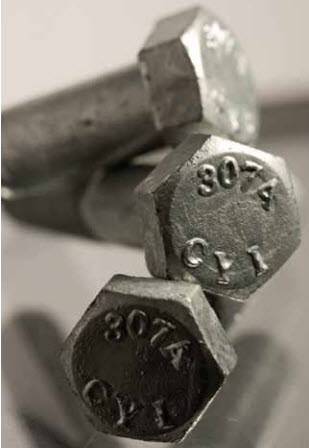
Bolts are used in a myriad of fastening applications. Like screws, they are threaded fasteners that are designed to join two or more objects. You can insert a bolt through two or more objects, and you can secure the end of a bolt with a nut.
There are different types of bolts, however. One of the most common types is hex. Hex bolts are used in many of the same fastening applications as other bolts, but they feature a unique head that distinguishes them from their counterparts.
What Are Hex Bolts?
Hex bolts are threaded fasteners that feature a hexagonal head. All bolts have a head. The head, of course, is the top part of a bolt that’s integrated with the narrower shank below it. Hex bolts feature a hexagonal head. You can find hex bolts in different sizes, materials and specifications. Nonetheless, they all have a hexagonal head.
The head on a head bolt has six sides. It doesn’t have a recess — recessed heads are more common with screws. Rather, the head consists of a solid and integrated piece of material with six uniform sides.
Benefits of Hex Bolts
With their hexagonal head, hex bolts offer several benefits. They are ideal for fastening applications in small spaces, for instance. In machines and equipment where there’s limited space, hex bolts are often preferred for this reason.
Some bolts have a square head. The problem with square heads, though, is that they only have four sides. To loosen or tighten a bolt with a traditional wrench, you’ll need to grip it on two sides of the head. Hexagonal heads have more sides than square heads, so they offer more surfaces to grip with a traditional wrench. This makes hex bolts easier to use in small spaces.
Hex bolts allow for greater torque as well. Torque is turning force. All bolts require turning to tighten or loosen. With hex bolts, you’ll create greater torque because of their six-sided, hexagonal head. And with greater torque, you can remove hex bolts more easily than other types of bolts, including square-headed bolts.
You don’t have to rely on a traditional wrench to tighten or loosen hex bolts. While a traditional wrench will certainly work, you can also use a socket wrench. Socket wrenches are available with hex sockets. Hex sockets are bits that are designed specifically for use with hex bolts.
